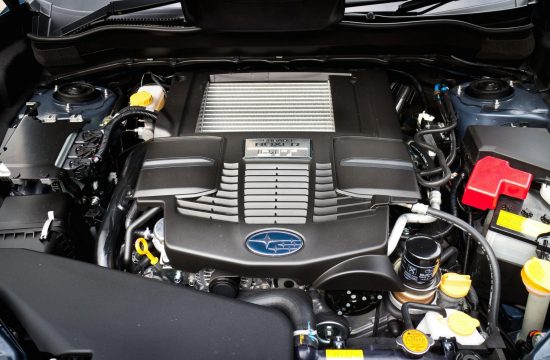
Mercedes-Benz’s parent company Daimler has continuously denied allegations that the German carmaker knowingly fitted their diesel vehicles with defeat devices to cheat emissions testing. Despite this, however, they continue to cooperate with authorities and pay off fines and compensation, and recall affected vehicles.
In 2020, the company promised to pay £1.2 billion (or $1.5 billion) to US authorities to settle diesel emissions claims involving Mercedes-Benz. Around 250,000 cars and vans were allegedly installed with defeat devices and sold to American customers.
For Daimler, this was a welcome development that indicated a possible resolution. However, they continued to deny the accusations.
Apart from the original settlement, the carmaker also agreed to pay affected US car owners an approximate total of £575 million to settle a class-action lawsuit brought against them.
These actions gave Daimler and Mercedes-Benz assurance that they no longer have to go through long and complex court actions in the US. They no longer have to worry about the financial and legal implications of facing the courts.
In addition to the above-mentioned fees, the car manufacturer is also expected to adhere to additional financial requirements of the said settlement, the amount of which can total millions.
The £1.2 billion settlement is broken down into:
- Civil penalties amounting to around £697 million
- California mitigation projects worth approximately £80 million
- Mitigation projects and recall programmes in other states amounting to about £348 million
- Other penalties totalling over £56 million
The settlement involved Daimler, the California Air Resources Board, and the District of Colombia in relation to allegations that the German carmaker sold diesel cars and vans (particularly the Sprinter model) that were equipped with defeat devices.
Recalls
Aside from the fees, Daimler and Mercedes-Benz are also required to recall about 85% of the affected cars and 85% of the affected vans so they can be fitted with cleaner and safer engines. The recall must be completed within three years.
The carmaker is also expected to provide affected drivers with the following:
- Extended warranty that covers updated hardware and software
- Annual test of the repaired vehicles to guarantee that they continue to meet emissions standards; must be done for five consecutive years
Daimler will be obligated to pay penalties if any of the updated vehicles do not meet the regulated emissions standards or if it does not complete the 85% passenger vans and cars recall rate.
Diesel emissions scandal
Mercedes-Benz is one of the vehicle manufacturers that are involved in the diesel emissions scam, more commonly known as the Dieselgate scandal. Volkswagen, another German carmaker, was the first to be implicated in the scandal in 2015 when the US Environmental Protection Agency (EPA) sent the company a Clean Air Act notice of violation.
The notice pointed to VW’s alleged use of defeat devices in thousands of its diesel vehicles sold across the United States beginning in 2009.
A defeat device is a type of software installed in vehicles that automatically detects when a vehicle’s emission levels are being analysed. Once it detects that such a test is being run, the device then suppresses the amount of toxic gases being emitted by the vehicle down to the legal limit.
Eventually, other car manufacturers were implicated in the scandal, including Mercedes-Benz. Like the VW case, the Dieselgate Mercedes scandal first took the spotlight in the US when American owners of their vehicles filed a class-action lawsuit against them for the alleged use of cheat devices to artificially adjust emissions tests. Several years later, prosecutors raided 11 of Daimler’s manufacturing sites in Germany due to allegations involving the use of illegal defeat devices.
KBA or Germany’s Federal Motor Transport Authority discovered illegal defeat devices designed to cheat emissions tests in 2018 and this led to the recall of around 774,000 Mercedes-Benzes sold throughout Europe.
From that time on until today, Daimler and Mercedes-Benz continue to spend millions (probably even billions) in fines and compensations in relation to their use of defeat devices. Vehicle recalls have also been quite constant through the years. Group litigations against them are still ongoing, with more car owners and law firms joining the action. Despite all these, Daimler continues to deny all allegations against them.
Affected car owners are encouraged to file a Mercedes emissions claim against the company for three reasons:
- They were mis-sold with vehicles that they wouldn’t purchase had they known about the defeat devices
- Their vehicles are pollutants, contributing to high levels of NOx emissions
- NOx emissions have serious effects not only on the environment but also on human health
How to file a diesel claim
By now, you may be asking, “how do I file my diesel claim?” Well, you’ll have to verify with your manufacturer first if your vehicle was affected. Mercedes typically sends emails to their affected customers. If you haven’t received an email from them, you can visit their website and talk to any of their representatives.
After verifying that your vehicle is affected, you have to find a panel of emissions solicitors that can help you through the claims process. It can be quite lengthy and complicated, so having a team that knows and understands the process is vital. The panel of solicitors at ClaimExperts.co.uk have an exceptional diesel compensation claims record, having recently won a number of clients compensation from the Volkswagen payout in the UK. You need to get in touch with them right away and discover whether you are eligible to claim.








